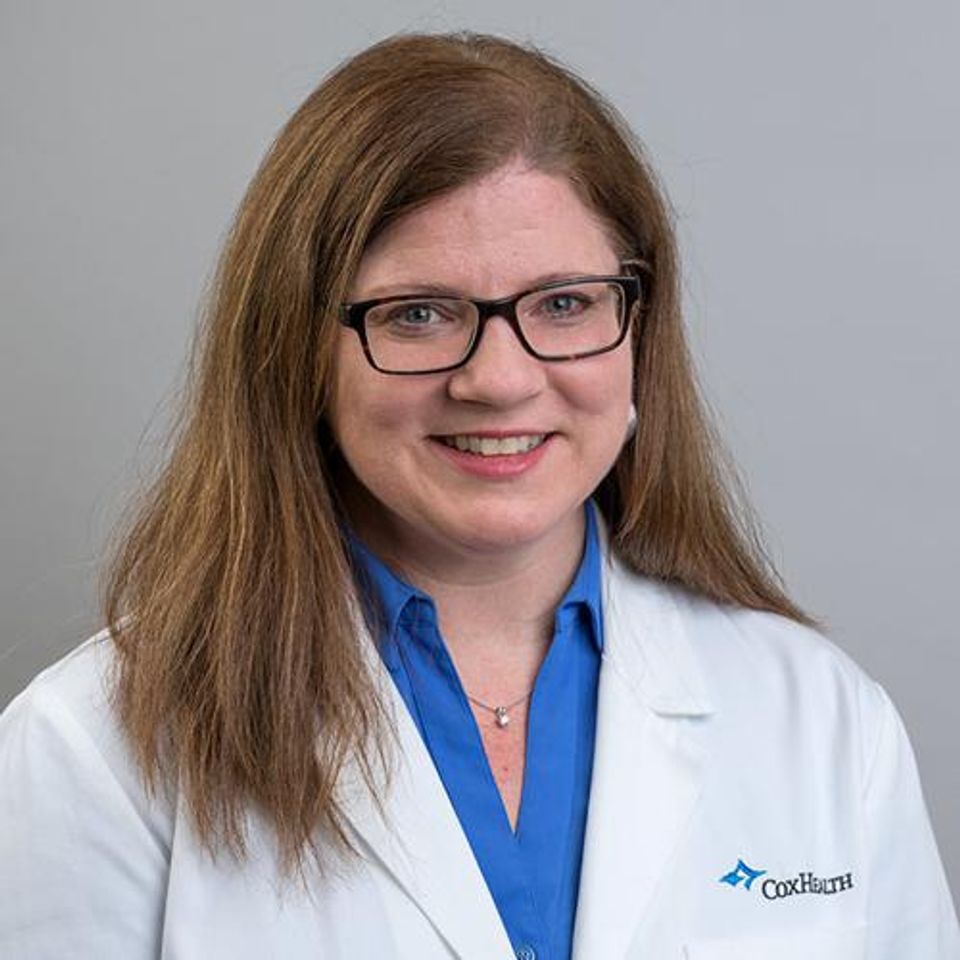
A Chat With Dr. Kristy McCall (CoxHealth OBGYN)
As part of Uterine Cancer Awareness Month in June, GYNCA interviewed Dr. Kristy McCall to get an OBGYN's take on uterine cancer and some things you should know about seeing your gynecologist.
GYNCA: What is the most important thing that you as an OBGYN want people to know about uterine cancer?
Dr. McCall: I want all patients to know that ANY amount of pink spotting, brown spotting or red bleeding is considered abnormal after menopause and needs evaluated. Menopause is defined as no menstrual bleeding for 12 consecutive months. This is the most common sign of uterine overgrowth, precancer or cancer. It may just be a benign finding, but it warrants and exam, ultrasound and possible biopsy of the uterine lining. Please do not ignore even subtle symptoms. Cramping may also be associated with the bleeding.
GYNCA: What are some common misconceptions or fears about seeing a gynecologist that you would like to address?
Dr. McCall: I hear all the time that women didn’t realize they still needed a gynecologic exam at a certain age. An annual breast and pelvic exam is essential at any age >21 (or earlier if symptoms or problems). There is no “safe age” at which gynecologic cancers stop occurring. Fears include worry about what will be found and the embarrassment of an exam. Rest assured, it is best to know if something is wrong and we all strive to respect a patient's privacy with a gynecologic exam.
GYNCA: What are some common misconceptions or fears about important gynecologic tests/procedures that you would like to address?
Dr. McCall: I believe women are concerned about discomfort with an exam or a procedure. If a procedure is necessary, I always talk the patient through the procedure and what to expect from a pain standpoint. If the patient desires, the procedure can be done in the Operating Room instead of the office. IV sedation or general anesthesia can be used so the patient does not feel any pain. I never want a patient's fear of the procedure to keep them from getting a complete evaluation and appropriate treatment for uterine, ovarian, cervical or vulvar abnormalities.
GYNCA: What is the most important thing that you as an OBGYN want people to know about uterine cancer?
Dr. McCall: I want all patients to know that ANY amount of pink spotting, brown spotting or red bleeding is considered abnormal after menopause and needs evaluated. Menopause is defined as no menstrual bleeding for 12 consecutive months. This is the most common sign of uterine overgrowth, precancer or cancer. It may just be a benign finding, but it warrants and exam, ultrasound and possible biopsy of the uterine lining. Please do not ignore even subtle symptoms. Cramping may also be associated with the bleeding.
GYNCA: What are some common misconceptions or fears about seeing a gynecologist that you would like to address?
Dr. McCall: I hear all the time that women didn’t realize they still needed a gynecologic exam at a certain age. An annual breast and pelvic exam is essential at any age >21 (or earlier if symptoms or problems). There is no “safe age” at which gynecologic cancers stop occurring. Fears include worry about what will be found and the embarrassment of an exam. Rest assured, it is best to know if something is wrong and we all strive to respect a patient's privacy with a gynecologic exam.
GYNCA: What are some common misconceptions or fears about important gynecologic tests/procedures that you would like to address?
Dr. McCall: I believe women are concerned about discomfort with an exam or a procedure. If a procedure is necessary, I always talk the patient through the procedure and what to expect from a pain standpoint. If the patient desires, the procedure can be done in the Operating Room instead of the office. IV sedation or general anesthesia can be used so the patient does not feel any pain. I never want a patient's fear of the procedure to keep them from getting a complete evaluation and appropriate treatment for uterine, ovarian, cervical or vulvar abnormalities.
